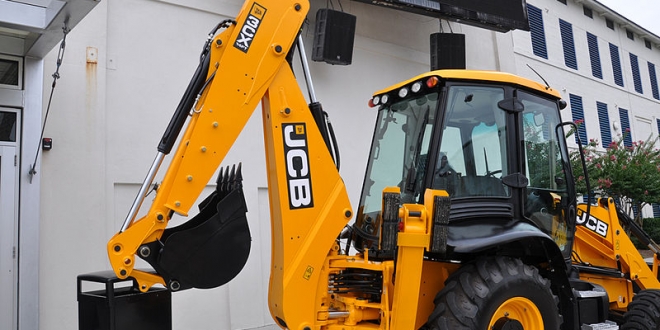Unite the Union has slammed the decision taken by digger manufacturer JCB to axe 950 direct jobs and 500 agency workers, accusing them of “throwing workers under the bus”.
JCB have announced that up to 950 jobs at its plants are at risk of redundancy, as demand for its machinery has fallen by 50% due to the ongoing coronavirus crisis.
The company wrote to employees to advise that as many as 950 staff roles are under threat at the company’s plants in Staffordshire and Wrexham, with a 45-day consultation period beginning on Monday 18 May.
Around 500 agency employees working across JCB’s UK sites are also being released from the business, as the company faces a huge drop in demand due to the COVID-19 pandemic.
JCB chief executive Graeme Macdonald said that the decision to restructure the business had been a tough one, but that the company “had no choice but to take difficult decisions to adapt to this new economic reality”. He said:
In 2020 we had planned to sell and produce over 100,000 machines. With so much global uncertainty, that figure right now is looking more like 50,000 machines.
In the UK, around 85 per cent of everything we manufacture is exported and our UK factories will now produce machines at half the rate we had planned just a few months ago. As a result, we have no choice but to align our cost base to demand for the rest of the year.
It is deeply regrettable that we have had to take these steps to restructure the business and that it will have an impact on so many people. No business could have anticipated the scale of the Covid-19 crisis and its economic consequences. JCB has had to act quickly for the long-term survival of the business, which has been at the heart of our decision-making throughout this difficult period.
However Unite, which represents workers at JCB, slammed the company’s decision. The union said the statement from JCB appeared to indicate it was moving away from the government’s Coronavirus Job Retention Scheme – which has now been extended to the end of October – now that it requires businesses to contribute towards supporting their own workforce.
Making reference to the significant donations JCB chairman Lord Bamford has made to the Conservative Party, and the fact that Boris Johnson chose a JCB plant for an election ‘stunt’ in December 2019, Unite said the decision is a “slap in the face” for the Prime Minister.
Unite assistant general secretary for manufacturing Steve Turner said:
JCB is preparing to throw 1,500 workers under the bus just as the government asks employers to pay their fair share towards protecting jobs and keeping the heads of loyal workers above water.
A major Tory party donor and big supporter of the Prime Minister – the company seems to be turning its back on measures personally tailored by Boris Johnson and Chancellor Rishi Sunak to help the very people that have made JCB a household name here and overseas.
If this is the case, this a personal slap in the face for the Prime Minister by a company that has lavished large sums on the Tory party and provided the forum for his bizarre election stunt when he smashed through a polystyrene ‘wall’.
Boris Johnson should be on the phone this afternoon seeking guarantees that JCB will save those jobs and use the JRS in the way it was designed to protect workers, their families and communities.
JCB’s announcement is an indication of a much deeper problem however. As the Prime Minister prepares to make that call, he should line up others to follow as part of the broader national drive to support UK manufacturing.
We are in desperate need of a clear plan and post-Covid-19 strategy from government to support UK Plc. Building resilience in our lost supply chains, re-shoring jobs and protecting skills alongside regional economies.
This is exactly what JCB should be doing to save these jobs. It’s a major exporter as well as domestic supplier and needs to play its part during this national emergency to safeguard manufacturing jobs, bring home its supply chains and spearhead a post-pandemic recovery.






Facebook Comments